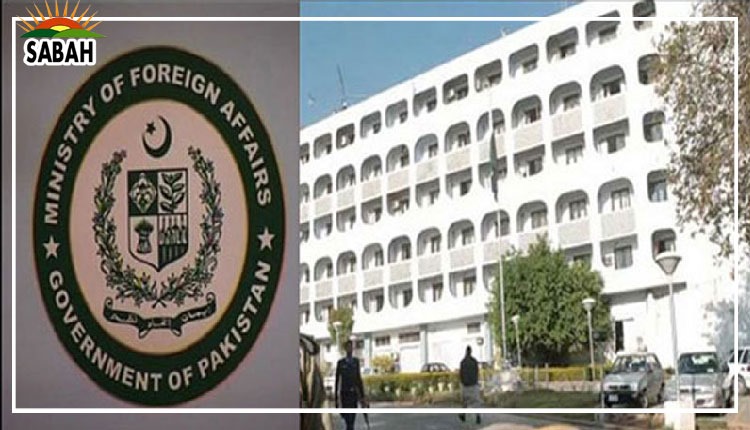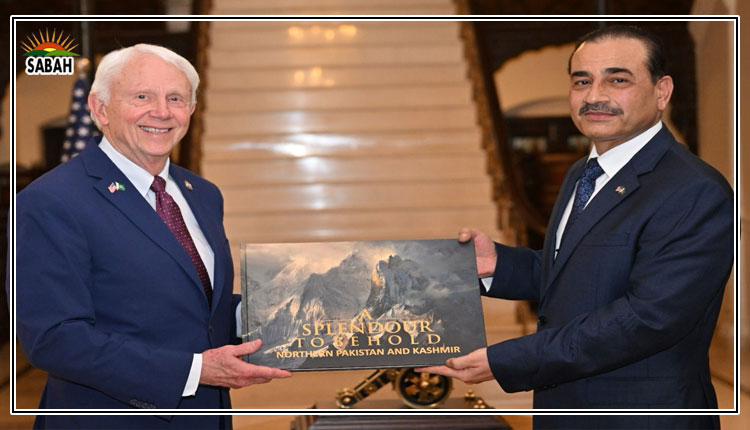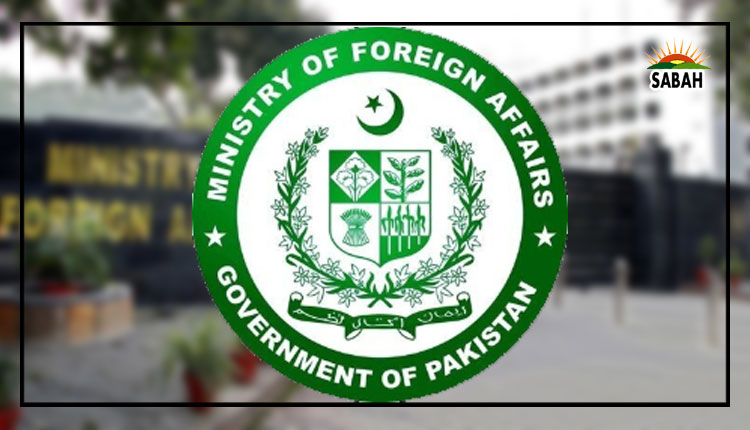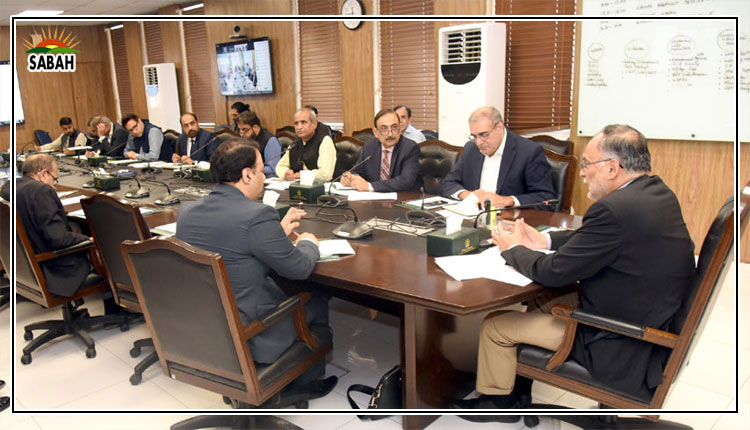Ahsan Iqbal emphasizes the need for promoting educational reforms to combat extremism
ISLAMABAD, April 07 (SABAH): Federal Minister for Planning, Development & Special Initiatives, Ahsan Iqbal Chaudhry, chaired the second steering committee meeting on the socio-political domain, following the directives of the Central Apex Committee concerning the revised National Action Plan 2021. The meeting was held in Islamabad on Monday.
During the meeting the Minister Ahsan Iqbal emphasized the critical challenge of terrorism the country is currently facing in Balochistan. He noted that, in addition to kinetic measures, non-kinetic actions, particularly socio-economic uplift in districts affected by conflict, are essential to improve the situation in a sustainable manner. He recalled that in 2017-18 during PML-N’s previous tenure, National Internal Security Policy (2018-23) was developed in collaboration with all stakeholders and the approval of civil-military leadership. The primary objective of this policy was to build on the success of Operation Zarb-e-Azab by prioritising non-kinetic measures. NISP (2018) provided a comprehensive framework that incorporated actions in administrative, social, economic, political and information domains to consolidate peace in the country. Unfortunately, the previous government did not implement the NISP (2018) which led to the reversal of gains achieved against terrorism and extremism. Resultantly, the Policy document resonates with the situation as much today as it did in 2018, and should continue to guide the government. The creation of this committee, according to the Minister, is to ensure that while security agencies perform their duties effectively, civilian agencies must complement their efforts. A holistic approach to counterterrorism needs to be adopted, with inclusive development and governance as the core principle of the agenda.
Ahsan Iqbal emphasized that a nation’s development cannot be achieved without internal peace and harmony. Further, Minister Iqbal highlighted the importance of provincial governments in this endeavor, particularly after the 18th Amendment, which granted provinces greater authority and resources. He stressed that provinces need to take charge of their developmental, educational, and governance initiatives, particularly in addressing the fires of terrorism. He also emphasized that this must be viewed as a national agenda, with provinces playing a proactive role. Effective collaboration and communication among provinces are vital to achieving success. Minister Iqbal called for the empowerment of local governments where they exist and, where they do not, the district administrations should be strengthened. He pointed out that, unfortunately, there has been no real devolution of powers to the grassroots level. He urged provinces to understand the necessity of decentralizing authority to ensure better governance and public welfare. He further mentioned that in 2022, the federal government had directed that developmental work begin in the 20 poorest districts of Pakistan. The federal government had committed to contributing 50% of the required funding, with provinces also expected to allocate their share. However, Minister Iqbal noted with concern that the provinces had not yet committed the necessary funds, and directed that they do so without delay.
The Federal Minister also emphasized the need for promoting educational reforms to combat extremism. He pointed out the necessity of ensuring that children in madrassas have access to broader career options. He stressed that education systems should equip students with skills in various fields like medicine and engineering, rather than limiting them to religious vocations. In a significant development, Minister underscored the importance of promoting religious tolerance, interfaith dialogue, and the rights of religious minorities. He proposed that religious harmony and anti-hate speech initiatives be prioritized in the national curriculum, which should also focus on the development of a more inclusive society.
Minister Ahsan Iqbal also highlighted the need for educational infrastructure in areas lacking access to high schools, particularly for girls, and stressed the importance of ensuring that such schools be established at the union council level. He also praised the progress made in Narowal, where 5,000 out of 7,000 university students are girls, and reaffirmed the commitment to promoting girls’ education for the betterment of future generations. The Minister further called for increased vigilance within schools to ensure that teachers with extremist inclinations do not influence students. He advocated for the introduction of a positive curriculum designed to foster national unity and moderation in students. Addressing the issue of teacher training, Minister Ahsan Iqbal emphasized the need for regular refresher courses for educators. He stated that these courses should be conducted urgently, with the federal government prepared to support provincial governments in this regard. Minister Iqbal also urged provincial governments to strengthen their engagement with the public and improve communication channels between the people and government representatives. He suggested that open forums, such as open court hearings, should be held by district commissioners to ensure transparency and accountability.
Moreover, the Minister reiterated the importance of fostering a strong ideological foundation in youth. He highlighted the need to promote the ideas of Allama Iqbal, particularly in addressing extremism, and announced plans to establish provincial branches of the Iqbal Academy. The Minister also expressed regret that the Iqbal Academy, which was meant to be established with a grant of 200,000 rupees in 1947, has since been neglected. Finally, Minister Ahsan Iqbal emphasized the need to bring Iqbal’s philosophy back into Pakistan’s educational system to inspire and guide the nation towards a brighter future. The meeting concluded with a commitment to ensure swift implementation of the discussed measures, with federal and provincial collaboration being key to their success.












